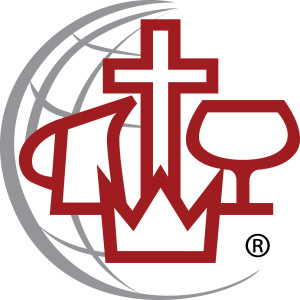
“Anatomy of an Illness: The Church’s Ministry of Healing”
John 9:18-23
I First, sickness gets our attention and it gets the attention of Jesus (9:1).
II Second, sickness makes us uncomfortable (9:2).
III Third, sickness is caused by alienation (9:2).
IV Fourth, oftentimes our best theological or commonsense explanations for sickness are not good enough (9:3a).
V Fifth, sometimes sickness happens for a good reason, so that God can be glorified in our life (9:3b).
VI Sixth, all believers in Jesus are called to help sick people find health (9:4).
VII Seventh, sickness is a work of the kingdom of darkness; healing is a work of the Kingdom of light (9:5).
VIII Eighth, the how of healing is very important (9:6).
IX Ninth, sickness can be overcome by divine healing, but healing does not happen without some action on our part (9:7).
X Tenth, divine healing will always arouse doubt (9:8-9).
XI Eleventh, the response to the healing of sickness is often questions (9:10-12)
XII Twelfth, healing is not only a debated topic, it is also a very divisive issue.
XIII Thirteenth, people who are healed enter into some kind of relationship with the Healer.
XIV Fourteenth, both sickness and healing take place within the context of _____________.
A. The first point we need to make is that both sickness and healing are a f______________ a__________________.
1. Before we turn to the parents, we need to see that the Pharisees only reached out to them because of their ____________________.
a. In other words, they did not believe that a _______________ had been done.
b. We should be a_________________ to people disbelieving God’s work in our life.
c. We should not be _________________ when we give Jesus glory for what he has done and some respond with unbelief.
2. Our daily experience continually reminds us h_____ m__________ sickness and disease are family matters.
a. The recent Lifeway poll revealed that ______% of our prayers are focused on family and friends.
b. To Heal a man born blind would require a s_________________ relationship with God. That is why the Pharisees first try to deny the miracle, and to do that they drag in the man’s parents hoping they will say their son was _________ born blind.
c. Both in times of sickness, and in those times when we celebrate healing, family is ______________ stage.
d. What sustains us during times of sickness, and what we celebrate when we experience healing, is r_______________________.
B. Second, families know the ______________ about our experience of sickness and healing.
1. The Pharisees have _______ goals here: the first is to __________ the miracle altogether, to show that it never happened.
2. The Pharisees perspective is also clear from the second question they ask: “You __________ your son was born blind, well then, how is it that he can now see?”
3. The Pharisees thought their l___________ and their s_____________ would force the parents to admit that it was all a s______________.
a. The reason that does not happen is because the parents were _____________ witnesses.
b. The only r_______________ source of information about this man was his parents.
4. The Pharisees, however, did not ask, “How is it he can now see?” only to prove that their son was _____ born blind. They asked that question because, even if there was a miracle, they might still be able to find a way to d__________________ Jesus.
5. If the Pharisees got more than ________ explanation for the healing, they could use that to create doubt about _____ or ________ was really responsible for the miracle.
C. Third, families with sick people know that their answer is a “____________,” not a “___________.”
1. Without a doubt, when circumstances are dire, families know the name of their loved one’s ___________________.
2. At other times, however, depending on the family, you will hear another name which is spoken in that hospital room, and that name is the name “_______________.”
3. Real hope is always based on a person who can _________ something.
D. Finally, families know there is a ____________ they will have to pay, either to deal with their loved one’s sickness, or to celebrate their loved one’s healing.
1. Sickness today represents a great _________________ burden for families.
2. We all know that when someone gets sick there is a monetary cost, but there is also a _________________ cost.
a. The Pharisees passed the buck to their son because they did not want to upset the r_________________ l______________.
b. To be kicked out of the Synagogue meant that no one would __________ you, or use your _______________, or even want to be _________ with you.
3. You and I still face that same _________________ today. We fear telling people who are not believers, “Yes, I have been diagnosed with an illness, but my ____________ is in Jesus.”
More Episodes
 2018-07-24
2018-07-24
 16
16
 2018-07-03
2018-07-03
 12
12
 2018-06-27
2018-06-27
 31
31
 2018-06-12
2018-06-12
 11
11
 2018-06-05
2018-06-05
 14
14
 2018-05-29
2018-05-29
 20
20
 2018-05-22
2018-05-22
 25
25
 2018-05-15
2018-05-15
 27
27
 2018-05-06
2018-05-06
 20
20
 2018-05-01
2018-05-01
 17
17
 2018-04-24
2018-04-24
 14
14
 2018-04-18
2018-04-18
 18
18
 2018-04-10
2018-04-10
 11
11
 2018-04-03
2018-04-03
 19
19
 2018-03-28
2018-03-28
 12
12
 2018-03-21
2018-03-21
 15
15
 2018-03-14
2018-03-14
 21
21
Create your
podcast in
minutes
- Full-featured podcast site
- Unlimited storage and bandwidth
- Comprehensive podcast stats
- Distribute to Apple Podcasts, Spotify, and more
- Make money with your podcast
It is Free
- Privacy Policy
- Cookie Policy
- Terms of Use
- Consent Preferences
- Copyright © 2015-2024 Podbean.com





